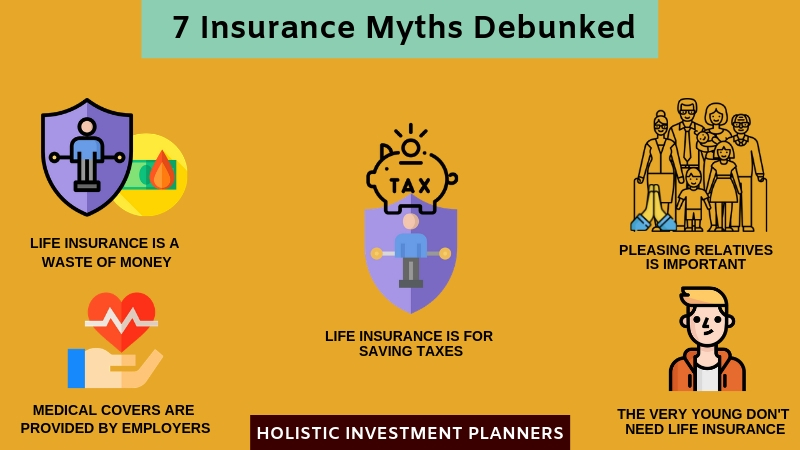Insurance Myths Debunked

Insurance is a crucial component of financial planning, but it is often surrounded by myths and misconceptions. Understanding the truth behind these myths is essential to making informed decisions about your insurance needs. In this article, we will debunk some of the most common insurance myths and provide you with the facts you need to protect yourself and your assets effectively.
Myth 1: "I Don't Need Insurance If I'm Healthy"
Many people believe that if they are healthy, they do not need insurance. However, insurance is not only about protecting yourself from immediate health issues but also preparing for unexpected events. Health insurance can cover medical expenses, preventative care, and potential emergencies, while other types of insurance, such as disability or life insurance, offer protection in case of unforeseen circumstances.
Myth 2: "Insurance Is Too Expensive"
While insurance premiums can vary, many people overestimate the cost of coverage. In reality, there are insurance plans available for various budgets. By comparing policies, seeking discounts, and evaluating your coverage needs, you can find affordable options that fit your financial situation. It's essential to balance cost with the level of protection you need.
Myth 3: "I Don't Need Renters Insurance If I Have Homeowners Insurance"
Homeowners insurance typically covers the property and liability for the homeowner, but it does not extend to renters. Renters insurance is designed to protect your personal belongings and provide liability coverage for renters. If you're renting, having a separate renters insurance policy is essential for safeguarding your possessions and covering any potential liabilities.
Myth 4: "All Insurance Policies Are the Same"
Insurance policies can vary widely in terms of coverage, exclusions, and costs. It's crucial to read and understand the details of each policy before purchasing. Different providers offer various coverage options, and what may be included in one policy might not be covered in another. Always review the policy terms and ask questions to ensure you get the coverage that meets your needs.
Myth 5: "I Can Wait Until I Need Insurance to Buy It"
Waiting until you need insurance to purchase it can be risky. Many insurance policies require a thorough underwriting process, and pre-existing conditions or recent claims may affect your eligibility or premium costs. It's better to secure insurance coverage before you need it to avoid gaps in protection and ensure you are adequately covered when unexpected events occur.
Myth 6: "Insurance Companies Always Deny Claims"
While it's true that some claims may be denied due to specific policy exclusions or errors, most insurance companies strive to provide fair and timely claims processing. Understanding your policy, keeping accurate records, and providing necessary documentation can help ensure a smooth claims process. If a claim is denied, you have the right to appeal and seek further clarification.
Myth 7: "Life Insurance Is Only for Older People"
Life insurance is beneficial at any age. Younger individuals can secure lower premiums and ensure financial protection for their loved ones in case of an unexpected event. Additionally, life insurance can serve as a tool for financial planning, including investments and savings components. Evaluating your life insurance needs based on your life stage and financial goals is essential.
Conclusion
Understanding and debunking insurance myths can help you make informed decisions about your coverage. By recognizing the truth behind these misconceptions, you can better protect yourself, your family, and your assets. Insurance is a vital aspect of financial planning, and having accurate knowledge ensures that you select the right policies to meet your needs and secure your future.